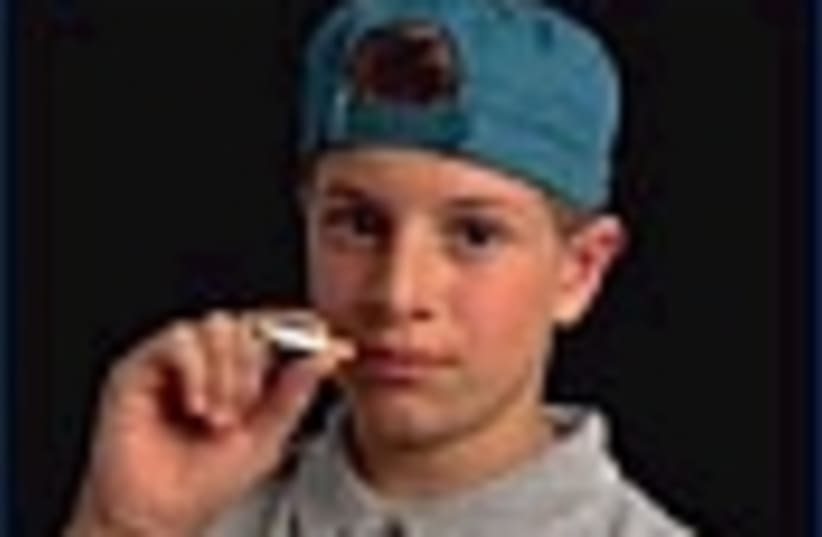Dear Dr. Batya,
My 16-year-old son has recently been involved with drugs, alcohol, smoking and stealing. Last week he got suspended with his peers from school and now I fear he will soon be expelled. Please help.
Concerned Mom
Dear Concerned Mom, Teenagers indulge in risk-taking behavior thinking themselves invincible. Add hormones, lack of inhibition, decreased motivation, poor judgment and inconsistent sleep, and the picture may be horrific. Positive peer pressure can enable kids to excel in school, make friends or join a youth group. Pressure can also take kids down the wrong path and involve them in a world of crime and other dangerous behavior. Adolescents are exciting, challenging and honestly refreshing. Full of integrity, they may make poor choices but with help, can change and grow. In my work with adolescents I believe:
1. Kids may give the impression that what an adult says is not important, but that's for show. What parents say matters, and adolescence is no time to give up good parenting as a role model for acceptable moral behavior. While you may be tempted to throw in the towel, become more involved, not less.
2. Kids act like they don't need structure or rules, but they desperately do. Unless you want your child out all night, involved in dangerous activities or put in a tempting position where "no" becomes difficult, set limits. Be firm and fair, and ease off only when you see your child acting responsibly. If uncomfortable with their behavior, let them know. Trust is important. Kids need you to be clear and straightforward. If your expectations aren't realistic, they'll ignore you. Where are your children at night? What are your expectations with respect to curfew, smoking at home, sexual conduct, etc? Many teenagers tell me that if they were the parent, they would be less lenient than their own parents are with them.
3. Adolescents need lots of love and affection even when they want you to think they are cool. They desperately seek approval from both their parents and friends. They'll cringe if you embarrass them, especially in front of their peers, but behind closed doors they want to be heard and appreciated. They'll gladly take that back rub if you are not judgmental. Most kids want to chat and spend time together, but on their terms. Tell them how much you appreciate them and how important they are in your life. Spend time together, be a good listener, and let them share their life's dreams.
4. Find out what your child is thinking and why - you may be surprised by how rational he really is. Kids will question you if you break your own rules or ask things that seem unreasonable. Being consistent is important but not easy.
5. Kids need to experiment and parents like control. There is a fine line between responsibility and freedom, and while you may want to protect your children, kids need to test the waters on their own. As they become increasingly more independent, you may find yourself silently biting your lip. Talk about things that bother you. You have a right to your opinion as do they. Remember, they are almost adults.
6. Parents play a very important role in drug and alcohol education and prevention. If your value system is good and you provide warmth, openness and love, most children will ultimately adopt their familiar childhood values. No parent or family is perfect, and while you may feel guilty and responsible, some behavior is outside of your control. You can be a strong influence but they are independent thinkers. Children must learn to accept responsibility for their own actions.
7. In discussing sex, drugs, smoking or drinking, recognize that you are their primary teacher. Begin the conversation early.
8. Kids need information presented in a way they can relate to. One of my favorite projects about celibacy and birth control is to give an adolescent responsibility for a large bag of flour for an entire week. He cares for, dresses and never leaves it alone except for when he goes to sleep. It goes with him to the shower, school, the store and out with friends and he learns true responsibility. Talk to kids at length about alcohol poisoning, how alcohol and drugs can be deadly, and let them understand the consequences of consuming beyond the legal limit.
Point out the risks of body piercing, tattoos, sexually transmitted diseases, smoking and gambling. Remind them that drinking and driving are a lethal combination not just for themselves, but for anyone with whom they take or offer a ride. Give alternatives to their risk-taking behaviors.
9. Encourage and empower kids when saying "no." As trendsetters, let them see that there are other acceptable ways to have fun. Role-play how to cope with intense peer pressure. Teach witty responses, how to walk away and how to change the subject. Talk about whether peers that encourage dangerous behavior are really friends and if these so-called friends are potentially damaging to your child's self-respect, how to change friendships without alienating anyone. Teach kids to make informed and "smart" decisions, and help them consider a trusted buddy with whom to confer when the going gets rough.
10. Get psychological help if you are concerned about your child. While initially not a willing participant, perhaps he is willing to be seen just once. Once in therapy, most actually like the one-on-one attention.
While you may describe your relationship as tentative and feel you can't intervene, can you really afford not to be involved? Have you hugged your adolescent today?
The writer is a licensed clinical psychologist in Ra'anana. This column offers general psychological advice and is not intended to replace treatment by a mental health professional. ludman@netvision.net.il
